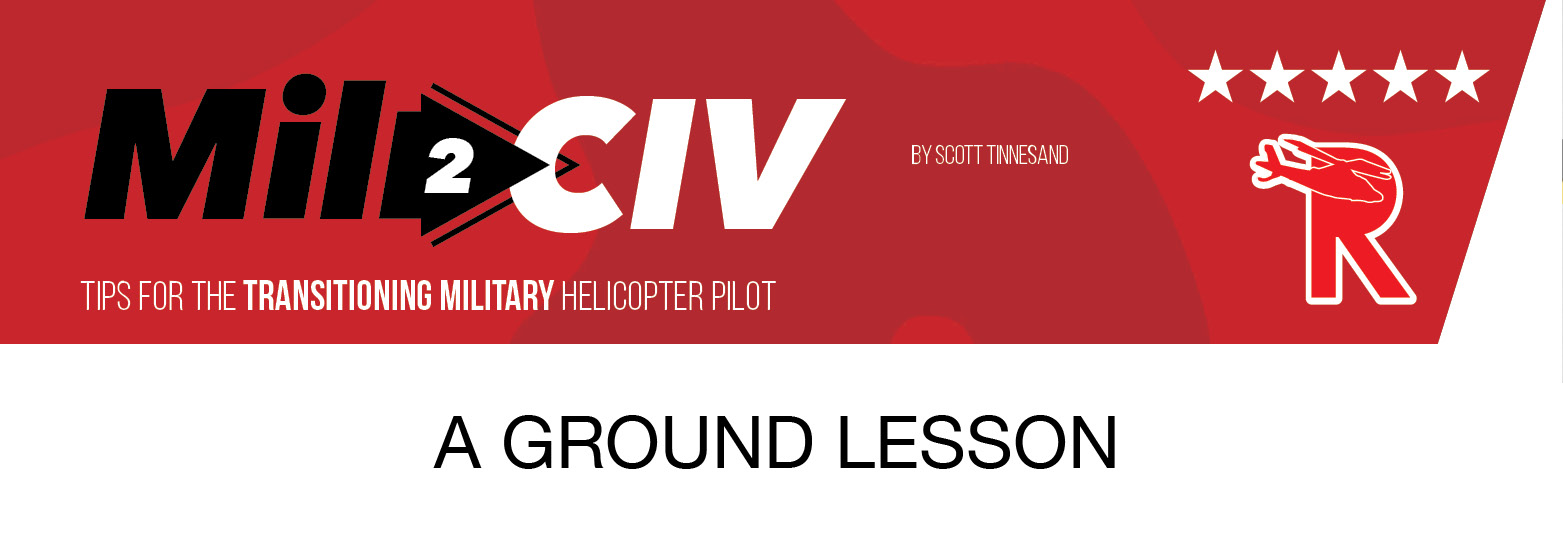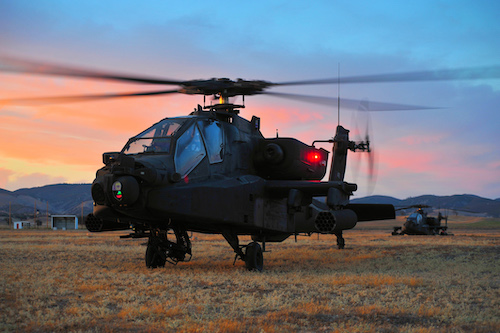|
Dec
05
2022
|
|
Posted 3 years 87 days ago ago by Admin
|
|

A question that has been asked many times by transitioning military pilots is: What can I be reading, studying or learning right now to get me ahead of the game for my transition to civil or general aviation? Assuming you don’t have any prior experience as a civilian airman and you utilized the MilComp (military competency) method to get your certificates and ratings, the answer is easy – study those topics that fall in the cracks between military and general aviation training. What are some of those topics? They include airworthiness requirements, supplemental type certificates, airworthiness directives, minimum equipment lists, advisory circulars, endorsements, Part 119 and Part 135 operations, practical test standards, helipad markings and pilot logbooks—just to name a few!
Unless a military helicopter pilot found themselves in a certain job or flying a certain aircraft where they were introduced to some of the topics listed above, there is a very good chance that they never needed to know or use them. It’s quite likely that those topics are in the cracks. And let’s be brutally honest: the preparation work for the MilComp written tests were likely accomplished at the rote level, either through a local half-day prep course outside the gate of your military flight school base or with the help of prep software like Sheppard Air. While this may sound like a controversial statement, I do believe it is true that a good number of military pilots could not pass the oral portion of a Private Pilot Rotorcraft Helicopter practical test – let alone a Commercial or Flight Instructor test. Now, don’t get me wrong – I’m not judging or saying this is bad. In fact, I am authorized by the FAA to issue FAA certificates and ratings based on military competency, and I do it all the time. I’m only saying that there are knowledge gaps that need to be filled when a pilot transitions from military to civilian.
Military pilots who go to work for a commercial operator will likely learn about many of the topics mentioned above and fill the knowledge gaps during Part 135 Basic Indoctrination Training. The training topics covered in basic indoctrination fall under two main subject areas: operator-specific and airman-specific. The airman-specific training is to ensure that basic pilot knowledge is sufficient prior to beginning the ground and flight training. This training will generally be a refresher for a civil-trained pilot and a significant learning experience for the pilot trained in the military.

The knowledge gap can be detrimental if the former military pilot doesn’t get the opportunity to train with a commercial operator or similar business with a strong training department prior to being immersed in civil aviation. Be aware of this and if you find yourself in this scenario, find a good flight school and get a few hours of ground training. It could save you from embarrassment, or even a certificate action from the FAA.
In the Sep/Oct 2020 issue of Rotorcraft Pro, I wrote a column titled “14 CFR 61.73 – A Military Pilot’s Best Friend.” It is an overview of the process to obtain FAA pilot certificates via military experience. Check it out online at https://justhelicopters.com/Magazine and scroll down to Sep/Oct 2020.
About the author: Scott is an experimental test pilot and instructor pilot at The Boeing Company in Mesa, Arizona, flying AH-64 Apaches, AH-6 Little Birds and airplanes. During his 33-year aviation career, he has been an Army pilot, EMS pilot, flight instructor and test pilot. Scott is an FAA designated pilot examiner (DPE), FAA Safety Team representative, volunteer and active pilot mentor as well as a co-chair of the Mil2Civ Transition Workshop at HAI’s Heli-Expo.
READ MORE ROTOR PRO SEP/OCT ISSUE
READ MORE ROTOR PRO: https://justhelicopters.com/Magazine
WATCH ROTOR PRO YOUTUBE CHANNEL: https://buff.ly/3Md0T3y
You can also find us on
Instagram - https://www.instagram.com/rotorpro1
Facebook - https://www.facebook.com/rotorpro1
Twitter - https://twitter.com/justhelicopters
LinkedIn - https://www.linkedin.com/company/rotorpro1